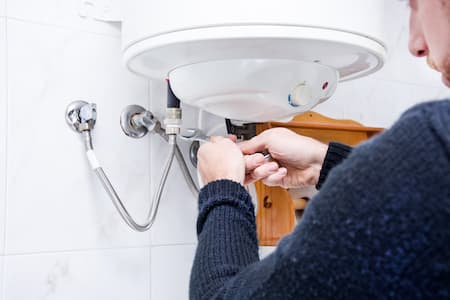
Managing Plumbing Disasters: How to Handle Emergencies Effectively
Introduction
Plumbing issues can strike at any moment, turning a calm day into an emergency situation. Whether it's a burst pipe, clogged drain, or overflowing toilet, handling plumbing disasters effectively is crucial for maintaining your home's integrity and comfort. With the right knowledge and approach, you can manage these emergencies without losing your cool. This article will guide you through various aspects of plumbing disasters, from identifying problems to finding the best local plumber for your needs.

Managing Plumbing Disasters: How to Handle Emergencies Effectively
When disaster strikes in the plumbing department, knowing how to respond quickly is essential. The first thing you must do is stay calm. Panic can lead to mistakes that may worsen the situation. Let's break down effective steps to handle plumbing emergencies.
Recognizing Common Plumbing Emergencies
Understanding the most common plumbing disasters will prepare you for when they occur.
Burst Pipes
Burst pipes are often caused by freezing temperatures or old, weakened pipes. If you hear loud noises or notice water pooling unexpectedly, you might be dealing with a burst pipe.
Clogged Drains
A clogged drain can cause water backup in sinks and bathtubs. If water drains slowly or not expert plumbing services Modesto at all, it’s time to take action.
Overflowing Toilets
An overflowing toilet is not only inconvenient but also potentially hazardous due to unsanitary water exposure.
Leaking Faucets
While not always an emergency, leaking faucets can waste significant water over time and indicate underlying issues.
Initial Steps When Disaster Strikes
What should you do first? Here's a step-by-step guide:
Finding Emergency Plumbing Services Near You
In times of crisis, quick access to reliable help is crucial.
Using Search Engines Effectively
Simply typing "emergency plumbing near me" in your favorite search engine can yield instant results. Look for companies that have positive reviews and offer 24/7 services.
Local Recommendations
Ask friends or family for recommendations on trusted plumbing companies near you. Word-of-mouth referrals often lead to reliable service providers.
DIY Solutions vs Professional Help
Should you try fixing it yourself? Here's how to decide:
- Simple Issues: Clogged drains may be something you can handle with a plunger or drain snake.
- Complex Problems: For burst pipes or major leaks, contacting a plumber is usually the best option.
Emergency Plumbing Tools Every Homeowner Should Have
Having basic tools on hand can save time during an emergency:
- Plunger
- Pipe wrench
- Adjustable wrenches
- Teflon tape
- A bucket
What Happens After Calling a Plumber?
Once you've called in a professional plumber, here’s what typically happens:
Understanding Plumbing Costs During Emergencies
How much will it cost?
Costs vary based on location and severity of the issue but expect anywhere from $100-$500 for emergency services depending on complexity and parts needed.
FAQs About Managing Plumbing Disasters
Q1: How do I find a good plumber near me?
A1: Searching online for “plumber near me” or asking friends for recommendations can help find reliable professionals.
Q2: What should I do if my toilet overflows?
A2: Turn off the water supply immediately and use towels to contain the spill until help arrives.
Q3: Are there any temporary fixes I can use until a plumber arrives?
A3: For minor leaks, using duct tape temporarily may hold things together until professional help comes.
Q4: Can I prevent future plumbing disasters?
A4: Regularly check pipes for damage and schedule routine maintenance with local plumbing services near you.
Q5: What is considered an emergency plumbing issue?
A5: Any issue that poses immediate risk of flooding or severe damage qualifies as an emergency (e.g., burst pipes).
Q6: How long does it usually take to fix common plumbing issues?
A6: Most minor repairs can be completed within 1-3 hours; complex issues may take longer depending on severity.
Conclusion
Managing plumbing disasters effectively not only protects your home but also saves money in potential damages down the line. By being prepared—having some basic tools handy and knowing when it's time to call in a professional—you'll navigate even the worst situations with confidence. Remember these tips as part of your home maintenance routine so that when emergencies arise, you're ready!
By following this comprehensive guide on Managing Plumbing Disasters: How to Handle Emergencies Effectively, you'll be equipped with knowledge that transforms panic into practical solutions! So don’t sweat those leaks; get prepared today!